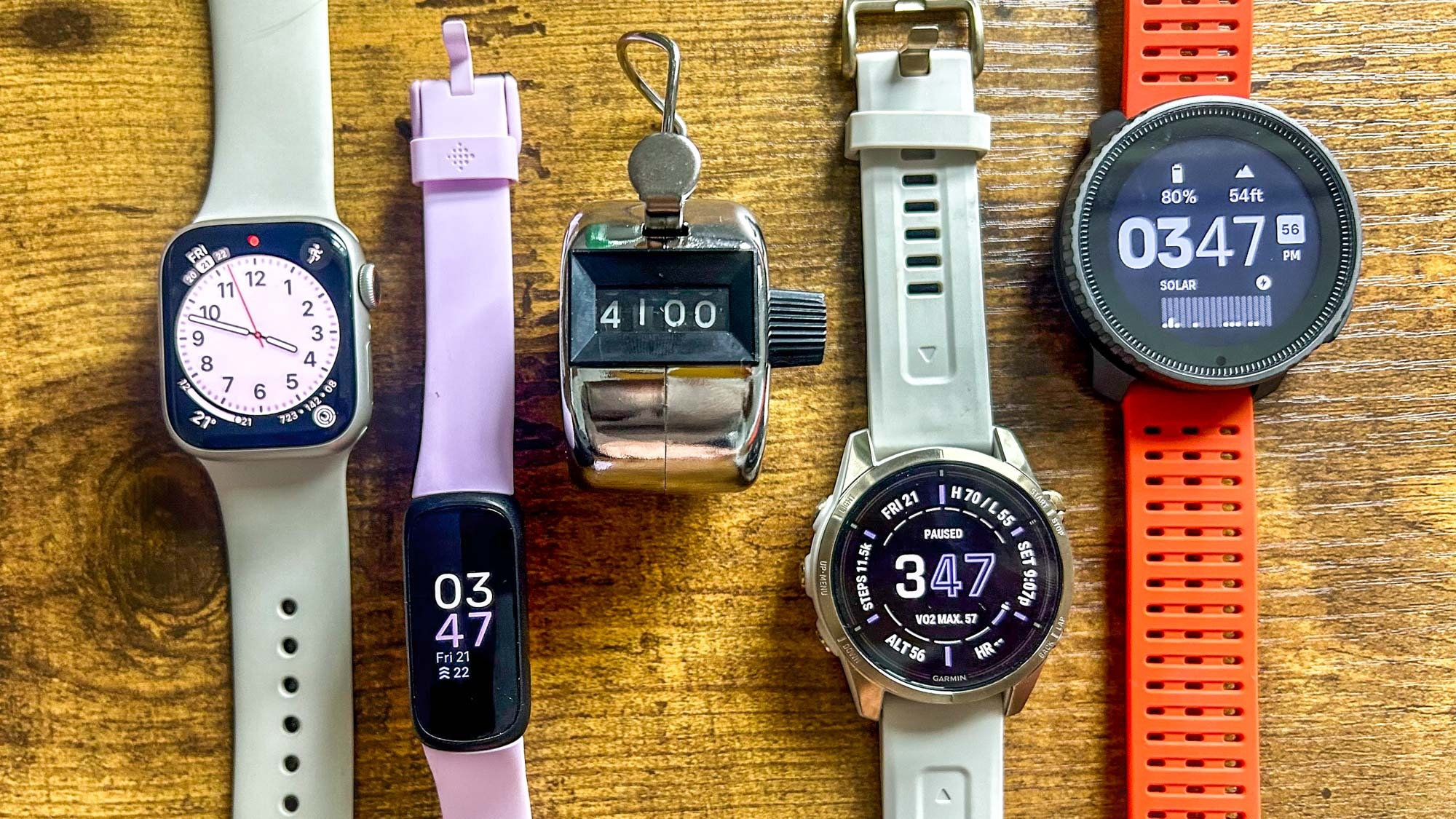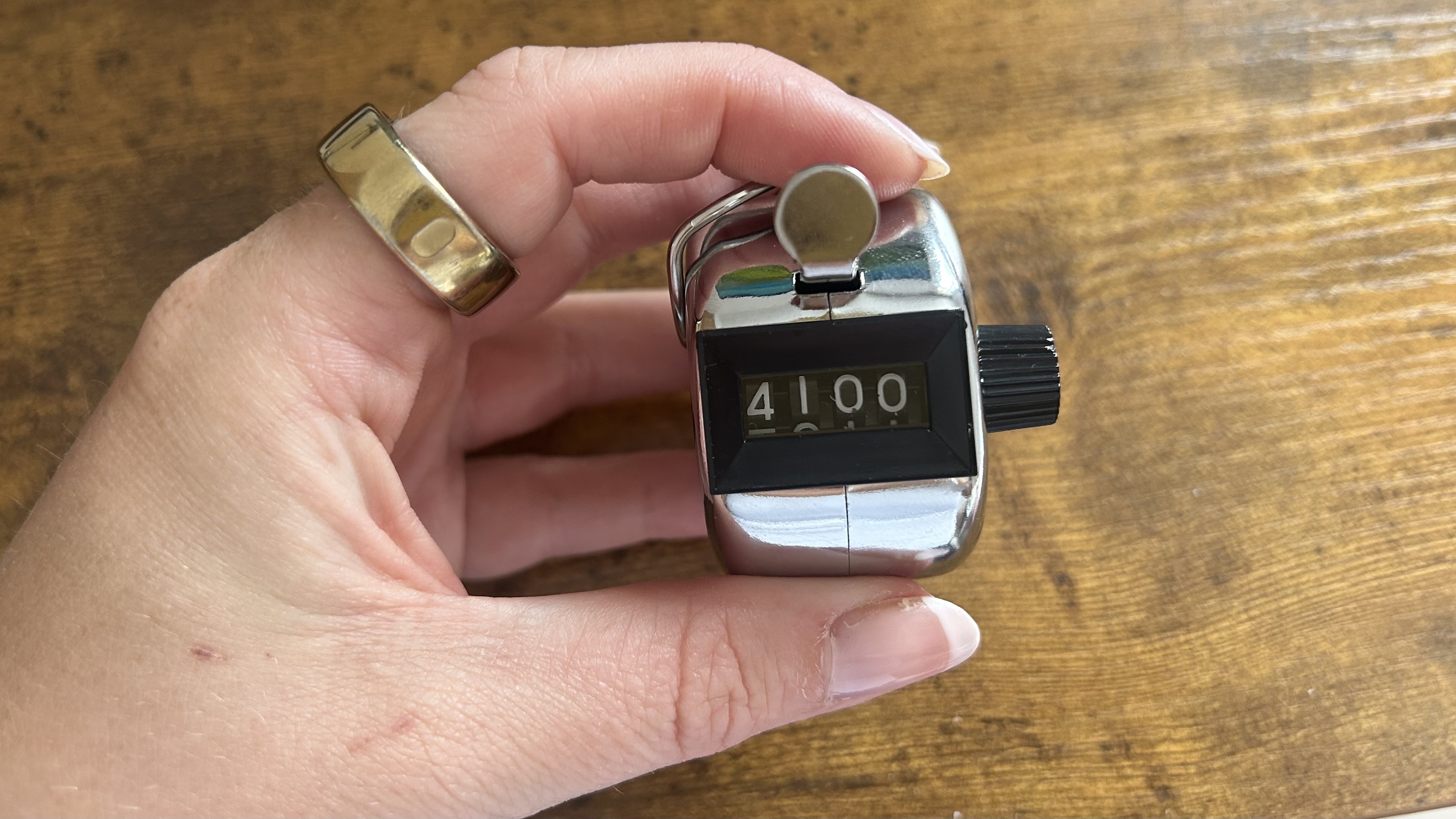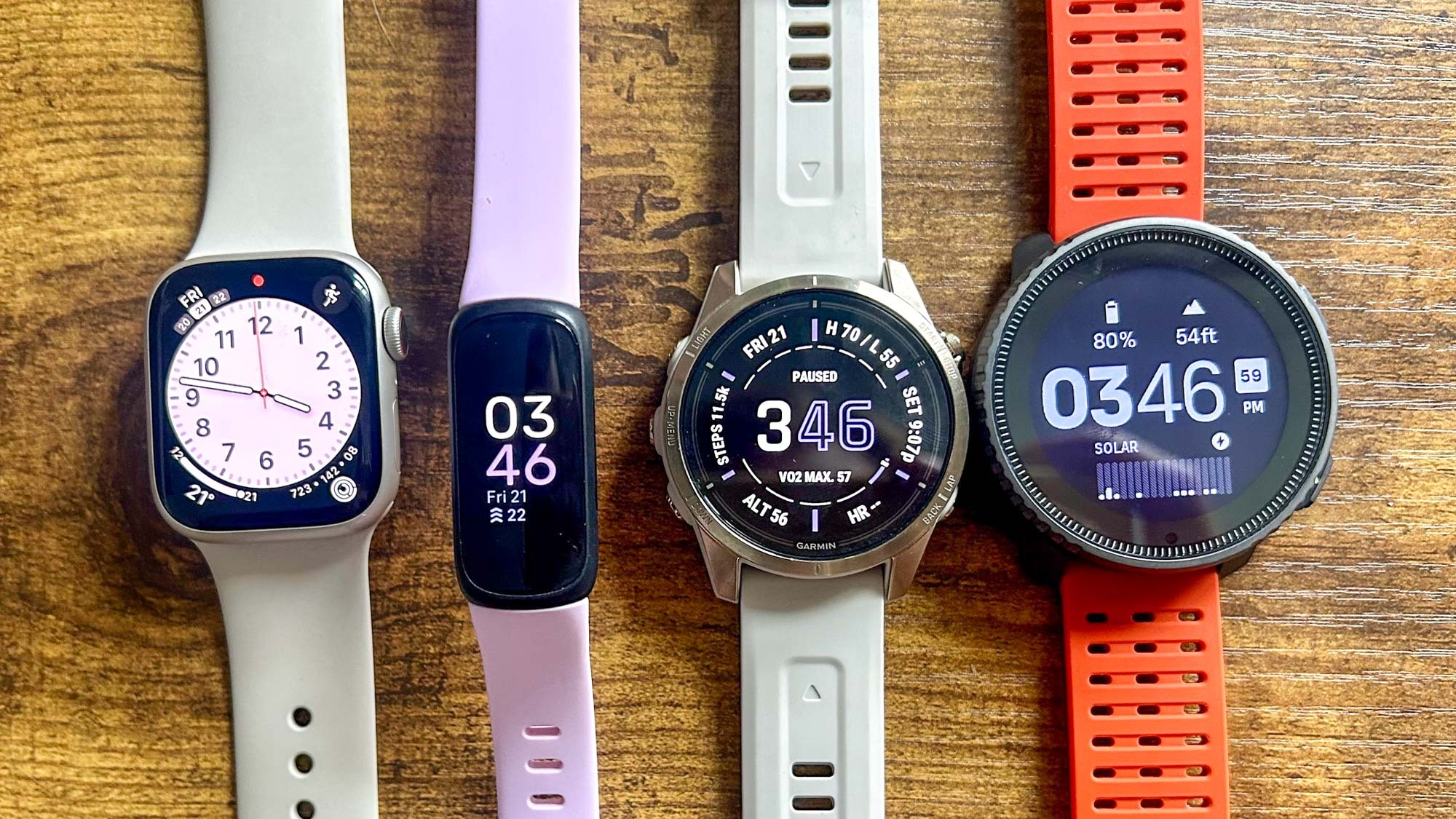Next up in my series of counting steps, while measuring the accuracy of some of the best fitness trackers on the market — I strapped four different watches to my wrist, and set out for a walk. I’ve already compared the accuracy of the Apple Watch 8 to the Garmin Forerunner 265, and the Apple Watch 8 to the Fitbit Inspire 3, so this time I added a Suunto watch to the mix as well. Read on to find out what happened.
For this challenge, I wore the Apple Watch 8, the Garmin Epix Pro, the Fitbit Inspire 3, and the Suunto Vertical. All of the watches track how many steps you’ve taken by using an internal accelerometer, which measures the swing of your arm.
Each swing counts for two steps. It doesn’t matter whether you wear your watch on your dominant or non-dominant hand, or whether you’re walking with your hands in your pockets, or holding something, the accelerometer should still measure your body’s movement.

I walked 4,000 steps with these 4 fitness trackers — here’s which was most accurate
As I walked I used a manual clicker counter to measure my steps. Each time I took a step, I clicked, and this allowed me to swing my arms naturally. In previous challenges, I’ve used an app on my iPhone, but the clicker was a lot easier, as it looped around one finger as I walked. It cost me £4.99 on Amazon, and is the kind of gadget you’d see a bouncer using in a nightclub.

As I have pretty small wrists, I wore two watches on each wrist — the Apple Watch and the Garmin Epix Pro on my left, and the Suunto Vertical and Fitbit Inspire 3 on the right. In total, I walked for 4,100 steps, at which point I noticed my Apple Watch was on 1%, so I quickly stopped all watches before I lost all the data.
I learned from my previous experiment with the Apple Watch and the Garmin that Apple makes it difficult to see your exact step count from an activity. Sure, you can see your daily total in the Fitness app, and you can find hourly step data in the Health app, but to make things a little less confusing, I downloaded the StepsApp Pedometer app on my Apple Watch.
Here are those all-important numbers:
- Manual recording: 4,100 steps
- Apple Watch 8: 3,982 steps
- Garmin Epix Pro: 4,102 steps
- Fitbit Inspire 3: 4,076 steps
- Suunto Vertical: 4,215 steps

Once again, you can see from the data that the Garmin Epix Pro is pretty much spot on when it comes to calculating how many steps I’ve walked. Yet none of the others are wildly out, and all were within around 100 steps. I was surprised that the second closest was the cheapest fitness tracker on test — the $95 Fitbit Inspire 3, although, from a fitness perspective, this little tracker doesn’t have built-in GPS, so I wouldn’t recommend it over the others if you’re serious about running.
As a reminder, fitness trackers do a lot more than just tracking your steps, and counting steps alone isn’t the best metric when it comes to getting fitter and losing weight. That said, it’s a good place to start. While the target of 10,000 steps began as a piece of marketing in 1965 by a Japanese company that was about to introduce a device called a Manpo-kei (it means 10,000-steps meter), it is a useful goal — a review of 32 studies, published in the International Journal of Behavioral Nutrition and Physical Activity found that “10,000 steps/day is a reasonable target for healthy adults.”
However you choose to track your steps, there are a number of benefits of walking more, including losing weight, building muscle, and feeling less stressed. Inspired? Here’s what happened when I did the 12-3-30 treadmill workout every day for a month, plus the best walking workouts to add to your fitness routine.
More from Tom’s Guide
For all the latest Technology News Click Here
For the latest news and updates, follow us on Google News.
